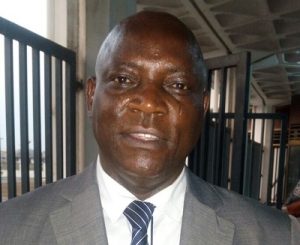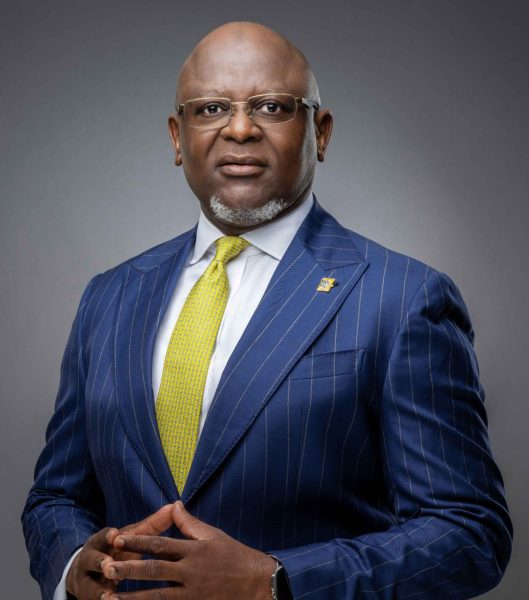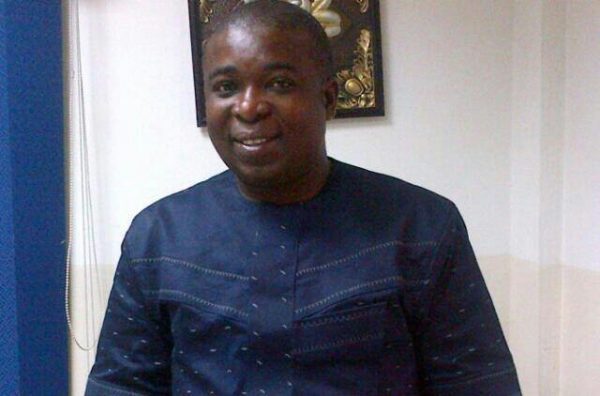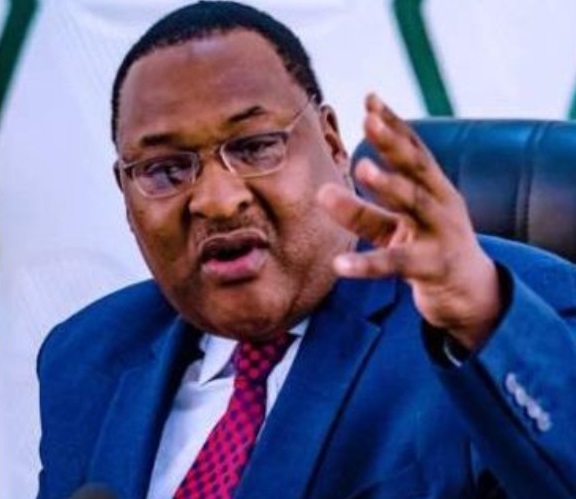Rail Line More Lucrative Than Road Transport – Prof. Nick Tells Transporters

Prof. Nick Ezeh is the Managing Director of Aulic Group of Companies, the concessionaires of the Lagos International Trade Fair. In this exclusive with MMS Plus, Prof. Nick discusses the potentials of the proposed Nigeria Export Trade Hub (NETH) to be established at the Trade Fair. He also bears his mind on the challenges facing the port sector and export business in Nigeria.
Excepts:
Business at the International Trade Fair has always been up and down. How have you been able to manage it over the years?
It has been as difficult as living in Nigeria. Living in Nigeria has always been very difficult but more difficult for those who expect a miracle; but those of us who know that we must work in order to eat have found life a bit easier.
Most concessionaires in the port industry are complaining about the dollar payment as a result of the unfavourable exchange rate. Has that also affected your business too?
Concession agreement varies from one sector or business to another. For us at Aulic, we have had more problems than the dollar in terms of the agreement in the concession. The problems arise as a result of the inconsistencies in the implementation of the agreement with the government. Today, we hosted the Nigerian Association of Chambers of Commerce, Industry, Mines, and Agriculture (NACCIMA) delegates but you heard them say that they were being discouraged from coming here. This is one of the inconsistencies.
As a nation, I believe that Nigeria would overcome most of its challenges but Nigerians should not expect a miracle. We should work for everything we want because this is the only way to grow the nation’s economy. Most of the problems we have in Nigeria are not homemade as most people believe. Some of these problems are foreign; some are anticipatory problems or challenges because several nations are scared about Nigeria as a result of its massive potentials. However, Nigerians should not be scared of themselves and we shouldn’t be intimidated to leave any business for foreigners. If people abroad can do it, then we should be able to do it and do it better.
What is traffic like at the Aulic Bonded Terminal?
The traffic is low right now because we are not really after bonded imports. We are more concerned about developing exports. When we have traffic on the exports then the traffic on the import would increase. If you don’t have anything to sell, sometimes you may not have money to buy.
Is your Bonded Terminal specifically for the Trade Fair or does it also receive cargo for other destinations?
Our bonded terminal isn’t just for the Trade Fair. It is for people doing business here in Trade Fair and also outside in various parts of the country. The bonded terminal is for Nigeria. We run an easy traffic bonded terminal. We are not eager to flood the place with abandoned container. We want cargoes that would come in and the empty containers would be returned for the purpose of export.
This venue was famous for the International Trade Fair before it moved to the Tafawa Balewa Square (TBS). Are you planning to bring it back here?
No! The international Trade Fair did not move to TBS, what moved to TBS was a Trade Fair of one particular organization which is the Lagos Chamber of Commerce and Industry (LCCI). So, what about the Badagry, Alaba, Trade Fair people? The Trade Fair at TBS by LCCI is not the International Trade Fair; it is just a Trade Fair by LCCI.
In any case, they complained in the past that there were no facilities but we have put the facilities in place so they can come back and hold their Fairs like any other organization. They do their business for 10 days in one year, when we have 365 days. We also have other groups who hold their Trade Fair for 2 weeks in one year or for 7 days in a year. We are encouraging them to come together and take advantage of the available facilities we have provided here. We have the facilities and everything is working so it should be able to attract business.
Let’s talk about the Nigeria Export Trade Hub (NETH), what are the prospects for Nigeria?
Nigerians should be happy because this is going to create rich pockets and a rich environment. It is also going to create massive employment that would take the youths off the streets; provide diverse opportunities and open Nigeria to the international market. NETH also promises to promote manufacturing possibilities and opportunities in packaging, and Nigerians who have graduated from various disciplines either in universities or polytechnics would have job opportunities.
With NETH, we are reiterating the fact that Nigeria has to first produce, manufacture and export. This is strategic to revive the nation’s economy and balance its level of import and export. It is high time we have more billionaires in this country and enhance the nation’s forex through our commodity exchange. Nigerians are very skillful so we want them to add value to their finished products and have an enabling environment to export, thereby earn revenue for themselves as well as the government.
Which of the seaports are you partnering with?
We are already designated to the Kirikiri Lighter Terminal (KLT).
Do you have plans for special warehouses and cold storage facilities for perishable goods?
We have plans for cold warehouses and dry warehouses because we are aware that we are going to be involved in exporting so many products that would come in various conditions. There may be need to repackage some of the products when they get here in line with the kind of product, the demand and the transportation system.
What other plans have been made on the development of the NETH Project?
We have reached out to the major government parastatals as well as other organized private associations relevant to the project such as the Nigerian Import-Export (NEXIM) Bank, the Ministry of Industry, Trade and Investment, Central Bank of Nigeria (CBN), Bank of Industry (BoI), Bank of Agriculture (BoA), Nigerian Quarantine Service (NQS), Standards Organization of Nigeria (SON), the Nigerian Association of Chambers of Commerce, Industry, Mines, and Agriculture (NACCIMA), among others. They would all have offices at the complex close to the NETH project.
NACCIMA has just given its endorsement so the project has taken off. The next thing is the physical infrastructure which should begin soonest. The road network is already in place, so the export business is almost set.
In 2016, there were notable agreements for the development of railways, establishment of national carrier, developments of Inland Container Depots (ICDs), etc. For 2017, what agenda would you set for the Minister of Transport, Hon. Rotimi Amaechi?
I would advise that Nigeria pays special attention to the rail. There is no country that has developed without the rail. The beauty of the rail is that you don’t need to manufacture a railway for you to have a rail line. In Nigeria, we have steel; we have the infrastructure and the landmass so we should go for rail development. Vehicles can be used for intra-city but when you have a fine rail network, the best option to travel long distance is via the railway.
I would also advise transporters to think less about commercial buses for travelling but they should put their resources together to float a rail line. From a business perspective it is more durable and it would guarantee more returns.
Rotimi Amaechi is a man who divides opinion in the Transport sector. What is your appraisal of his administration as the Transport Minister?
Rotimi Amaechi did not come from the moon. He is a Nigerian who is aware of the many challenges facing transportation in the nation. When you talk about the road transport, the road network isn’t good and he is not the Minister of Works who is responsible to fix and maintain the roads. He is talking about closing the Abuja airport to refurbish the runway which is good but I think what is needed at the Nnamdi Azikiwe Airport is a new runway. Of course, there could be challenges like finance or other logistics. Even in Europe, sometimes when they want to build another runway people say no because the residents complain about the noise pollution and there are so many other litigations.
When you see people working with the government, you should sympathize with them because they go through a lot that they may not be able to tell the public. So, I would say Rotimi Amaechi has joined the bandwagon of changing the way Nigerians do business and I believe he would get better. He is flowing alongside the availability of funds or the lack of; the challenges of implementation and also working with civil servants which is very difficult in all aspects.
One last word for Nigerians on NETH
Nigerians must take responsibility for changing this country. No foreigner would change this nation and the country would be changed by the speed, determination and hard work of every Nigerian. This Nigerian Export Trade Hub is an opportunity for Nigeria to enhance its economy through foreign exchange as well as massive provision of jobs.
By Kenneth Jukpor







